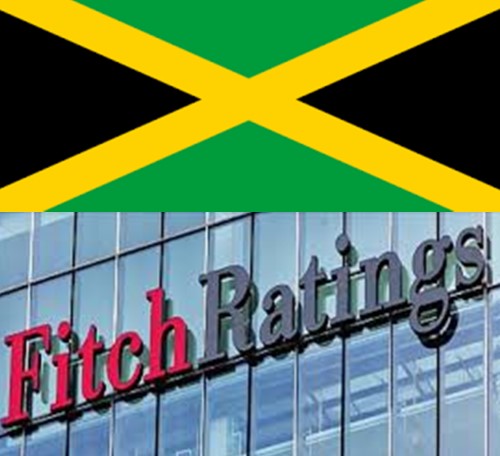
“Corona” pandemic: Jamaica’s outlook falls to stable from positive by Fitch Ratings citing negative shocks of Bauxite exports

Jamaica has been making progress in reducing its government debt-to-gross-domestic-product levels that are still above its rating peers. The rating agency projected the economy to shrink by 4% in 2020 followed by a recovery of 2% in 2020 and thus Jamaica’s B+ rating was asserted.
As of 11th April’20, Jamaica has countered with 69 confirmed cases of COVID-19 and with 4 deaths.
The COVID-19 epidemic, emerged from the Chinese city of Wuhan, has caused a global shutdown of manufacturing as many nations and municipalities imposed stay-at-home orders or even more strict containment measures, affecting the demand for raw materials.
Fitch Ratings said: “Bauxite and alumina prices are facing downward pressures as manufacturing in China slowed down and demand weakens. Bauxite/alumina exports were 6% of GDP in 2018.”
The agency added by saying: “it's base case projections assume most of the lockdown measures will be lifted in the second half of 2020.”
In October’19, Richard Byles, Governor, Central Bank of Jamaica noted during an exclusive Latin Finance roundtable of central bankers: “The downturn in commodity prices hit the economy and caused the closure of some of the bauxite and aluminium producing plants. However balancing against those negatives is the fall in the price of crude oil, a major import at 8% of GDP.
Jamaica was in the process of turning its economy around and establishing macroeconomic stability. The government was on a path of lowering inflation, reducing debt levels and increasing international reserves. Unemployment had sunk to a 10-year low by the end of last year. Byles pointed out in October’19 how the efforts to improve the government’s balance sheet were limiting its ability to invest for growth.
The rating agency said: “Fitch forecasts the general government balance to deteriorate to -2.5% of GDP for FY2020/2021 from 0.2% in FY2019/2020, which would still be moderate in the context of the severe economic shock and compares favourably with rating peers.”



Trump weighs using $2 billion in CHIPS Act funding for critical minerals

Codelco cuts 2025 copper forecast after El Teniente mine collapse

Electra converts debt, launches $30M raise to jumpstart stalled cobalt refinery

Barrick’s Reko Diq in line for $410M ADB backing

Abcourt readies Sleeping Giant mill to pour first gold since 2014

Nevada army depot to serve as base for first US strategic minerals stockpile

SQM boosts lithium supply plans as prices flick higher

Viridis unveils 200Mt initial reserve for Brazil rare earth project

Tailings could meet much of US critical mineral demand – study

Kyrgyzstan kicks off underground gold mining at Kumtor

Kyrgyzstan kicks off underground gold mining at Kumtor

KoBold Metals granted lithium exploration rights in Congo

Freeport Indonesia to wrap up Gresik plant repairs by early September

Energy Fuels soars on Vulcan Elements partnership

Northern Dynasty sticks to proposal in battle to lift Pebble mine veto

Giustra-backed mining firm teams up with informal miners in Colombia

Critical Metals signs agreement to supply rare earth to US government-funded facility

China extends rare earth controls to imported material

Galan Lithium proceeds with $13M financing for Argentina project

Kyrgyzstan kicks off underground gold mining at Kumtor

Freeport Indonesia to wrap up Gresik plant repairs by early September

Energy Fuels soars on Vulcan Elements partnership

Northern Dynasty sticks to proposal in battle to lift Pebble mine veto

Giustra-backed mining firm teams up with informal miners in Colombia

Critical Metals signs agreement to supply rare earth to US government-funded facility

China extends rare earth controls to imported material

Galan Lithium proceeds with $13M financing for Argentina project

Silver price touches $39 as market weighs rate cut outlook

















